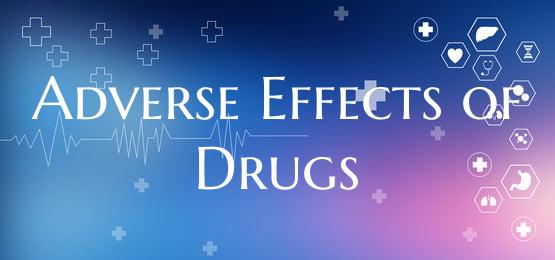
Adverse Effects of Drugs
Drug therapy has revolutionized modern healthcare, offering effective treatments for various medical conditions. However, along with their therapeutic benefits, drugs also carry the potential for adverse effects that can impact an individual's health and well-being. It is essential to comprehend the adverse effects of drugs to ensure safe and effective treatment outcomes.
1. Types of Adverse Effects: - Common adverse effects: These are often mild and temporary, such as nausea, dizziness, or headache. They usually subside as the body adjusts to the medication. - Serious adverse effects: These can be severe and life-threatening, requiring immediate medical attention. Examples include allergic reactions, organ damage, or neurological effects.
2. Factors Influencing Adverse Effects: - Individual variability: Genetic factors, age, sex, and underlying health conditions can influence how a person responds to a drug, increasing the risk of adverse effects. - Drug interactions: Combining multiple medications can lead to interactions that amplify or diminish the effects of one or more drugs, increasing the likelihood of adverse reactions. - Dosage and duration: Taking drugs in higher doses than prescribed or for extended periods can escalate the risk of adverse effects due to increased drug exposure.
3. Minimizing Adverse Effects: - Consult healthcare professionals: It is crucial to discuss any concerns or symptoms with a healthcare provider to determine the appropriate course of action. - Follow dosage instructions: Adhering to the prescribed dosage and schedule can help minimize the risk of adverse effects and ensure optimal treatment outcomes. - Monitor for side effects: Being vigilant about potential adverse effects and reporting them promptly can facilitate timely intervention and management.
4. Reporting Adverse Effects: - Pharmacovigilance systems: Reporting adverse effects to regulatory authorities or healthcare providers contributes to the monitoring of drug safety and helps identify previously unknown risks. - Patient reporting: Patients are encouraged to report any suspected adverse effects directly to regulatory agencies to contribute to overall drug safety monitoring efforts.
In conclusion, while drugs play a crucial role in managing various health conditions, it is essential to acknowledge and address the potential risks associated with their use. By understanding the adverse effects of drugs, healthcare providers and patients can work together to optimize treatment outcomes while minimizing the likelihood of harm.